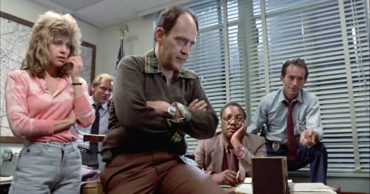Rosalind Franklin’s life story has all the elements of a controversial biopic similar to movies such as The Imitation Game. Franklin was a Jewish scientist who lived in England and made significant contributions to the discovery of the double helix structure of DNA, a fact that is taught in basic high school science classes but largely unknown to the scientific community until the mid-1950’s. She died of ovarian cancer and the young age (even for then) at 37.
So where is the storyline? For one, Franklin was ignored by the Nobel Prize Committee for nomination despite the fact that three of her scientific colleagues, James Watson, Francis Crick and Maurice Wilkins, were awarded the Nobel Prize in Physiology for the same work. On top of that, all three admitted her vital contribution to the discovery of the double helix. The Nobel committee stated they do not give out Nobel Prizes posthumously, which is true, but another rule of the prize is that “In no case may a prize amount be divided between more than three persons.” So it may have been that Franklin was the odd “man” out when deciding the nominations.
Franklin was also an atheist, rejecting her family’s traditional Judaism, explaining to her father that her scientific approach to life was building the future for a better world. So there is the interfamily conflict to build on, plus the fact that she was basically a child prodigy who liked to do arithmetic problems for fun. It is easy to play this angle because what normal person likes to do any kind of arithmetic?
But the major storyline that can be picked up is to examine the nomination process of the Nobel Peace Prize that has gone on since 1901. Franklin’s case is interesting on many levels, the first that there were only 12 women awarded the prize in its first 60 years. A second is on the posthumous award claim since there were two men who actually did receive the award posthumously, one in 1931. So a possible subplot is there was a discrimination against women in the selection process.
What is there not to like about all the possible tentacles of the story of Rosalind Franklin’s life? Whatever your political leaning, and there are a lot of politically themed films that are gaining attention, there is something controversial about her entire life. There are so many conflicts to choose from: a feminist scientist who was intentionally overlooked by the nomination committee; a woman who rejects Judaism in favor of science (or you can take the anti-Semitism route); the story of the discovery of the DNA double helix; the stupid rules that the Nobel Committee members use for determining nominee and winners (conservatives will pile on to this storyline with President Obama’s Nobel Prize for Peace).
But the real question to be answered in a movie is why we give so much attention to these prizes in the first place. It is a bunch of Swedes who basically hand out a prize of roughly $1.1 million, a diploma, and a cheapened version of the original gold medal (it was 23 karat in 1901 but today is 10 karat green gold coated in 24 karat gold). Basically, if you get the prize it makes you an instant millionaire. The only people who really seem to care about the award are the academics. (If you doubt this, name the last man to receive the Nobel Prize in Literature.)
It almost seems as the purpose of the prize is to have somebody’s name put up in lights, which is very Hollywood-esque. But Franklin’s life story has all the necessary elements for a modern Hollywood movie. We all know how Hollywood can magnify the smallest slight into a major motion picture. Besides, there seems to be an ongoing fetish among moviegoers to find the skeletons of a person’s or nation’s past and bring them back to life. Since we don’t seem to be making much progress forward, why not look backwards and try to change the past?
 Follow Us
Follow Us





